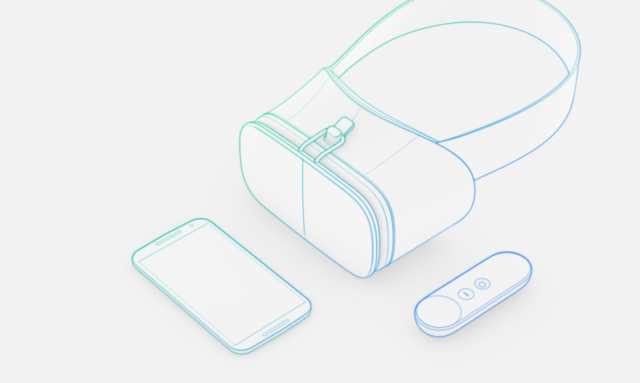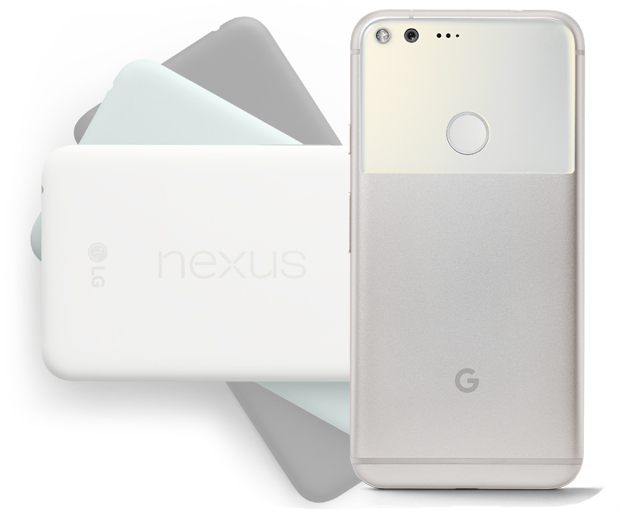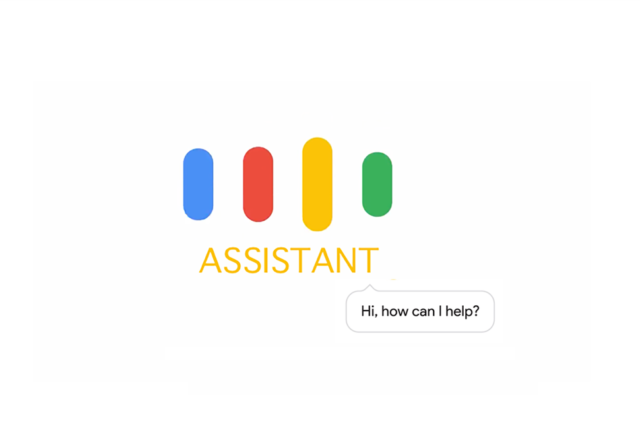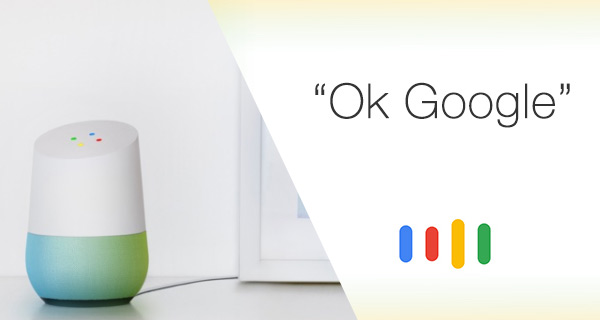A look at the potential challenges for major market players following the announcement of new Google products with a focus on AI.

It is possible that Google's decision to become a full-fledged device manufacturer and combine its own hardware, software and ecosystem into one whole in the future will seem inevitable, obvious or even slightly overdue. But in the short term, this is a significant and very courageous step that threatens major players with new challenges. Such a claim is supported by the fact that the company has made it clear that the devices presented by Google (especially the Pixel smartphones and the Google Home smart speaker) are important vessels for the technology, behind which, according to the company, the future of the entire technological world – artificial intelligence.
Emphasis on AI
Every technology company tries to focus on artificial intelligence, by which I mean various ways to endow technology with knowledge about people and the world and the almost human ability to help and communicate with us. But Google believes in the ability of its virtual assistant (Google Assistant) to win this race, even if it admits that it is just beginning. And to achieve this goal in Mountain View decided to get 100% control over the device.
Almost a year ago, I wrote about five reasons for Google's move to making its own hardware. I missed the AI aspect. Google didn't repeat my mistake. Sundar Pichai called artificial intelligence “a fateful trend in the history of computing,” comparing it to the rise of the PC, the Internet, and the proliferation of smartphones. “I understand that we are moving towards a world where AI will play a priority over mobile technology.”
While AI is still in its infancy, Google's decision to become a full-fledged device maker for the most important technology should not be underestimated. The move will finally give the search giant the opportunity to compete on an equal footing with the current full-cycle 'champion' – its main competitor Apple. There are many advantages to the new approach, even if we don't count AI: from better autonomy and easier software updates to new functionality that is based on both software and hardware. For example, by exercising full control over the design of a device, Apple over and over again succeeds in 'squeezing' more and more features out of their devices, even if it seems that their characteristics are obviously worse. And this is a significant reason that in the conquered Android world the leading apparatus with the result of about a billion sales is iPhone.
Given the recent events, it can be assumed that things may well change. But not only Apple will feel the impact of change. Let's try to imagine how Google's move will affect the work of large players.
Apple
For decades, Apple competed mostly with software platform developers (Microsoft, Google), who depended on third-party hardware partners for the presentation of their technologies, as well as with some such manufacturers ( Dell, Samsung ) with limited rights to access and change 'someone else's' software. The last 15 years of this confrontation have been for Apple. Now the company is forced to face a competitor in the form of a 'smart and wealthy' manufacturer who can do everything himself.
Cupertino squandered their advantage in AI integration: Siri is still often quite clumsy, so many people choose to ignore it. Going too long to move to online music streaming and reliance on hardware integration has prevented Apple Music from being an easier way to listen to music on iPhone than Spotify. In the part of the AirPlay system, which transfers video and music to TVs and speakers, you can see that all the early 'handicap' in the last few years has been forgotten, while the Google Cast system has been integrated into speakers and TVs of many other manufacturers and became the basis Google Home. What about great 'cloud' storage Apple for storing photos, music, messages and other content in the device ecosystem? Google has introduced its own storage products for all of its new devices. Also, there are rumors on the net that Apple is working on its own AI-powered device with a speaker. A similar device from Google has already been released.

Simply put, the world's largest technology company has a worthy competitor in the face of a transformed Google. This does not mean that Apple will lose. The company has not ceased to be a leader, its devices are still at the top: new Pixel smartphones are similar to iPhone, and the Google campus is flooded with Mac laptops. Apple has many advantages in terms of hardware, from a calibrated supply chain to hundreds of stores that sell and support products, before that Google is still up and running. Oh yes, iPhone are sold by all operators, Pixel is still only from Verizon. Google's new vector does not mean Apple will have to step up efforts on multiple fronts. This is a new challenge for the company, and a pleasant plus for consumers.
Samsung
I believe that the main reason for Google becoming a full-fledged hardware manufacturer is the fact that the company has become too dependent on Samsung to showcase and sell a full version Android with all Google services and applications. Android is used by hundreds, maybe thousands of device manufacturers. But only the Korean giant managed to achieve significant market share, profits and a huge marketing budget. However, Samsung's priorities did not always coincide with those of Google. Now the Korean company will have to compete with its own software provider in the highly profitable premium smartphone market, where before that it ruled the ball Apple.
For Samsung, such a step happened absolutely at the wrong time, it just couldn't be worse. There is also a rumored story with the massive recall of the flagship Note 7 due to a massive defect in batteries, which led to fires or even explosions of devices. The exchange process is still underway and has damaged the brand's reputation, and Google is right there and willingly offers fans Android a great alternative.

The new Daydream VR system running on the new Pixels looks like a worthy competitor to the Gear VR, which runs on the Oculus platform from Facebook. Daydream is cheaper, has a variety of content (Google owns YouTube) and on top of that, Google gives out limited edition glasses for Daydream to pre-ordered Pixel smartphones.
Like Apple, Samsung is too early to write off. Samsung's flagship models are beautiful in appearance, boast proprietary hardware solutions, the company also has the company's operating system Tizen, which, judging by our private conversation with Samsung's management, is a kind of backup springboard in case of problems with Google. But today Tizen can't compete with Android or iOS. An unpleasant month for Samsung ended with a bad week. Perhaps the whole year will not be as good as we would like.
Amazon
Amazon has always been a very successful and versatile company that everyone admires. But hardware has never been her strong suit after the first and still popular monochrome Kindle reader. The company's tablets are mediocre. Smartphones 'didn't take off'. That all changed with the release of the Echo, the first successful speaker to use Alexa, a proprietary artificial intelligence system.
The new and cheaper Google Home, with the integration of new Google products, will be a strong competitor for the Echo and other Alexa-powered devices. Home has Google Assistant built in, which is potentially smarter than Alexa and better built into the ecosystem Android, for example, can stream video and audio to Google Cast-enabled devices. Amazon is still in business, but if Google Home confirms its expectations, then Amazon will have a serious rival with a large budget and a relatively more serious array of information obtained through AI self-learning.
Microsoft
For the most part Microsoft has left the phone business, prioritizing AI and funding the best AI research team in the industry. But even the Redmond giant will feel the influence of Google's new role. Cortana is just getting started. The company makes its own hardware in the Surface line, but sales are small and depend on the old sales model Windows and Office to other companies. Microsoft does not have its own smart column. In the end, the new Google will give Redmond executives deep thought.

Facebook is not a hardware manufacturer .. yet. But they managed to lure into their ranks Regina Dugan, a well-known specialist in Google's hardware development, and it was this move that spawned a number of rumors that a device from Facebook could soon appear. Like everyone else, Facebook has started working on AI with a vengeance and the company's efforts are only the first round of this fight. The integration of Google artificial intelligence into various devices can confuse smart bots Facebook maps, because it is much easier to say 'Ok Google'. On the other hand, Facebook belongs to Oculus, whose development in VR started some time ago. Thus, Daydream brings companies face to face for the first time in several years.
Conclusion
The world has not turned upside down at the news of Google becoming an independent device manufacturer. But it will shake up many. By embedding AI in its own fully controlled hardware, Google is moving even more boldly into the future that all of the company's competitors recognize. Competition may create another round of holy wars between fans, but for all other consumers, this race will only be a plus.
Original article by Walt Mosberg
Apparently, the prediction that in 8 years people will remember the past Google event as we now remember the release Android is starting to come true. The forecasts presented in the material look, in my opinion, quite adequate, let's see if the Pixel will be able to break the stereotype of the Nexus, which has become a line for a handful of geeks, and turn into a popular device. Nexus, of course, is a pity, but looking at the prospects of the Pixel, you can see the validity of such a move by Google.AI, as there are many in these two letters, but not yet for an ordinary user, especially here. Do you see the future for AI, or is all this Google activity an empty phrase for you?
